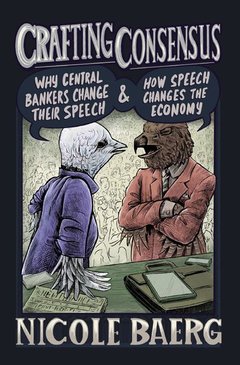Description
Crafting Consensus
Why Central Bankers Change Their Speech and How Speech Changes the Economy
Author: Baerg Nicole
Language: English
Subjects for Crafting Consensus:
Publication date: 11-2020
224 p. · 21.1x13.7 cm · Hardback
224 p. · 21.1x13.7 cm · Hardback
Description
/li>Biography
/li>
In a world dependent on the constant sharing of information, central bankers increasingly communicate their policies to the mass public. Central bank communications are drafted in monetary policy committee meetings composed of policymakers with differing interests. Despite their differences, committee members must come together, write, and agree to an official policy statement. Once released to the public, central bank communications then affect citizens' actions and ultimately, the economy. But how exactly does this work? In Crafting Consensus, Nicole Baerg explains how the transparency of central bank communication depends on the configuration of committee members' preferences. Baerg argues that monetary policy committees composed of members with differing preferences over inflation are better suited to communicating precise information with the public. These diverse committees produce central bank statements of higher quality and less uncertainty than those from more homogeneous committees. Additionally, she argues that higher quality statements more effectively shape individuals' inflation expectations and move the economy in ways that policymakers intend. Baerg demonstrates that central bankers are not impartial technocrats and that their preferences and the institutional rules where they work matter for understanding the politics of monetary policy and variations in economic performance over time. Conducting empirical analysis from historical archival data, textual analysis, machine-learning, survey experiments, and cross-sectional time-series data, Crafting Consensus offers a new theory of committee decision making and a battery of empirical tests to provide a rich understanding of modern-day central banking.
Nicole Baerg is Assistant Professor in Government and co-director of the Essex Summer School in Social Science Data Analysis at the University of Essex. She worked previously as a research intern at the Federal Reserve Bank of Atlanta. Her research interests include comparative political institutions, central banking, political economy, quantitative text analysis, and European integration.
© 2024 LAVOISIER S.A.S.




